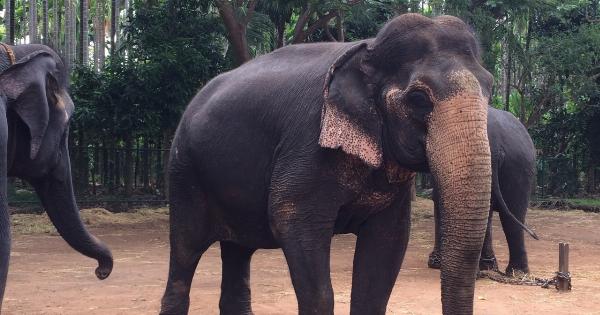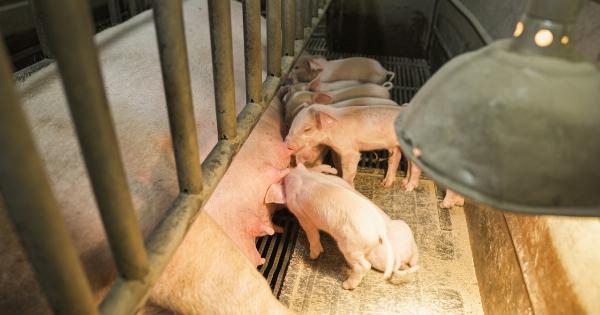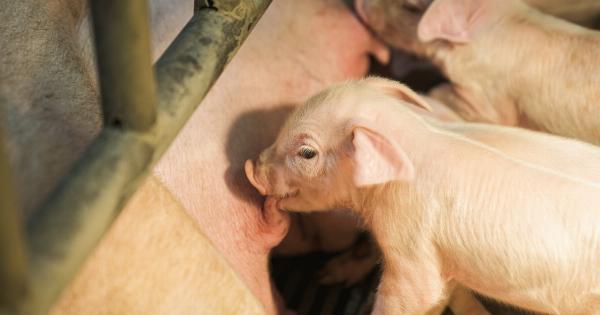As humans, we have a natural tendency to form connections and relationships with living beings around us. And there is no denying that animals, with their ability to love unconditionally, have a special place in our hearts.
But when it comes to a question of whether we can love animals more than our fellow humans, it brings forth a moral dilemma.
Animal Cruelty vs. Human Suffering
Animal lovers argue that animals are innocent and helpless beings that deserve our love and protection. And yet, we as a species continue to consume, experiment, and abuse them for our own gain.
But at the same time, there are millions of humans who suffer from poverty, hunger, and disease. So, does loving animals more than humans make us indifferent to the suffering of our own kind?.
The answer to this question is not easy. While it is true that humans have the ability to cause great harm to each other, it is also important to acknowledge our capacity for compassion and empathy.
And similarly, while animals can provide us with unconditional love and companionship, they are not capable of addressing larger social and economic issues that affect the lives of humans.
Anthropocentrism vs. Biocentrism
The debate about whether we can love animals more than humans also raises broader questions about the way we view the natural world. At the core of this debate are two opposing worldviews- anthropocentrism and biocentrism.
Anthropocentrism refers to the belief that humans are the center of the universe and that everything around us exists only for our benefit. This worldview often leads to the exploitation of nature, including animals, for our own gain.
On the other hand, Biocentrism is the belief that all living beings, including animals, plants, and even non-living things, have inherent value and deserve respect and protection.
So, when we say that we can love animals more than humans, it is often based on a biocentric view of the world. But this does not mean that we ignore the needs and suffering of our fellow humans.
Rather, it calls for a more balanced and inclusive approach to our relationships with all living beings.
The Ethics of Love
Love is a complex emotion, and when it comes to our relationships with animals, it is often intertwined with ethical considerations. So, is it possible to ethically love animals more than humans?.
One way to approach this question is by examining the moral principles that guide our relationships with others.
For example, the principle of non-maleficence requires us to prevent harm to others, while the principle of beneficence requires us to promote the well-being of others. These principles apply to both animals and humans.
Thus, when we choose to love animals more than humans, we must ensure that we are not causing harm to humans in the process. For example, supporting animal rights does not mean that we should abandon efforts to address human rights violations.
Similarly, promoting animal welfare should not come at the cost of neglecting the basic needs of human beings, such as access to food, water, and healthcare.
The Value of Life
At the heart of our love for animals and humans is the value that we assign to life itself. But what is the meaning of ‘value’ in this context?.
For many animal lovers, the value of life lies in the ability to experience joy, pain, and emotions. Thus, we choose to value the life of animals that we feel can experience these emotions.
Whereas, for some people, the value of life is due to the potential for rational thought or the ability to contribute to society.
The question of whether we can love animals more than humans often challenges our definitions of ‘value’ and forces us to re-examine our moral priorities.
The Paradox of Love
Love is a universal emotion that transcends boundaries of species, race, and socio-economic status. And yet, when it comes to the debate about loving animals more than humans, we are confronted with a paradox.
On the one hand, our love for animals can provide us with a sense of comfort, joy, and purpose. But on the other hand, it can also lead to a sense of apathy and detachment from our fellow humans.
The paradox of love lies in the tension between these two extremes.
To love animals more than humans, we must first acknowledge the complex nature of our emotions and recognize the ways in which they shape our relationships with others.
We must also strive to cultivate empathy and compassion for all living beings, while acknowledging the unique challenges and complexities of our relationships with animals and humans.
Conclusion
The question of whether we can love animals more than humans is not a simple one, and there may not be a clear-cut answer. Instead, it calls for a nuanced understanding of the ethical, moral, and emotional dimensions of human-animal relationships.
Ultimately, what matters most is not the hierarchy of our love, but rather our ability to value and respect the lives of all living beings, both animal and human.





























